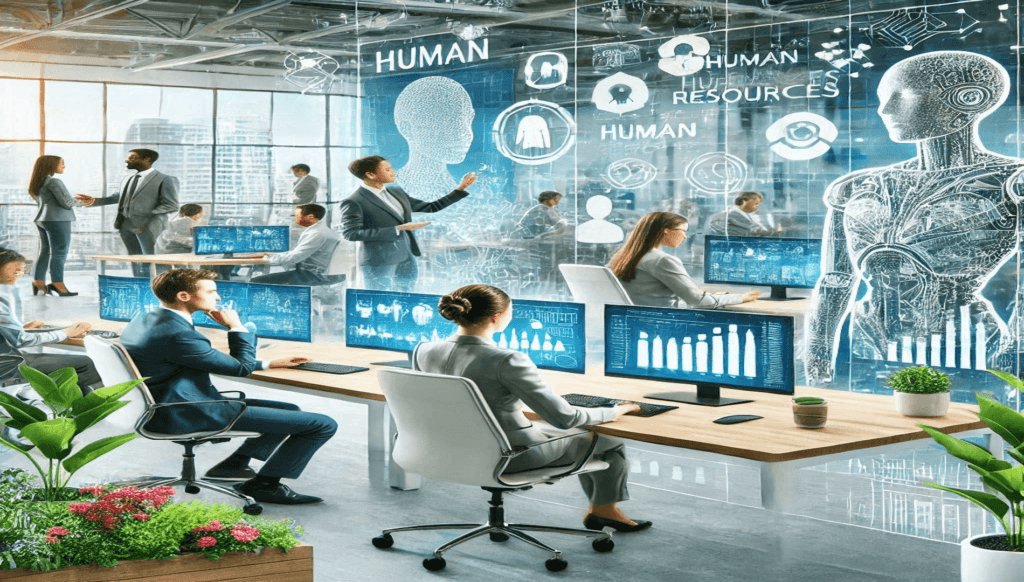
Human resources technology (HR tech) is revolutionizing how organizations manage their people. From streamlining recruitment processes to enhancing employee engagement and automating performance management, HR tech is making a profound impact. But what is human resource technology exactly, and why is it important? Let’s dive deep into its transformative effects on workplaces.
What Is Human Resource Technology?
Human resource technology encompasses software, tools, and platforms designed to automate, streamline, and enhance HR functions. From recruitment and onboarding to talent management and analytics, these tools help HR professionals shift their focus from administrative tasks to strategic initiatives.
The rise of tools like applicant tracking systems, generative AI platforms, and HR information systems (HRIS) demonstrates how the intersection of human resources and tech is reshaping business operations. But this transformation isn’t just about adopting tools; it’s about leveraging them strategically to create more agile, responsive, and human-centric workplaces.
Why Is Technology Important in Human Resources?
The rapid pace of technological advancement has fundamentally changed how organizations approach HR. Here are key reasons why HR technology is critical:
Efficiency and Productivity:
Automation reduces the burden of repetitive tasks, such as payroll processing, leave tracking, and benefits administration. This frees up HR teams to focus on strategic priorities like talent development.
Data-Driven Insights:
HR platforms provide actionable insights into workforce trends, enabling better decision-making around hiring, retention, and engagement.
Enhanced Employee Experience:
Modern tools offer personalized learning opportunities, real-time feedback, and seamless onboarding, improving overall employee satisfaction.
Scalability:
For growing organizations, HR tech provides scalable solutions that adapt to the increasing complexity of managing larger, diverse teams.
Why and How Has Human Resources Changed Due to the Technology Revolution?
The technology revolution has dramatically shifted HR’s role within organizations. Let’s explore how:
1. From Administrative to Strategic
HR’s traditional focus on administrative tasks has evolved. Today, HR professionals play a strategic role in driving company success by aligning talent strategies with business goals. Advanced tools enable this shift by automating routine tasks and providing real-time insights into workforce performance.
2. Enhanced Recruitment Processes
Platforms like Eightfold Talent Intelligence and Metaview use AI to streamline recruitment. These tools automate resume screening, schedule interviews, and even generate unbiased job descriptions. This speeds up hiring and ensures a fairer, more inclusive process.
3. Improved Employee Engagement
Tools like Lattice and Culture Amp offer real-time feedback and engagement insights, allowing HR teams to address issues proactively. AI-driven platforms also personalize career development plans, making employees feel valued and supported.
4. Reskilling and Upskilling Initiatives
The need for continuous learning has never been greater. HR platforms like Benify and SAP SuccessFactors offer AI-powered learning modules to help employees adapt to changing job requirements, ensuring organizational agility.
Key Tools and Platforms Driving HR Transformation
Here are some standout technologies that illustrate why HR technology is important:
1. Generative AI in HR
Generative AI tools like Leena and Benify are game-changers. They automate performance management, employee onboarding, and even benefits administration. For instance, Leena’s virtual assistant generates action plans and provides real-time workforce insights.
2. Data-Driven Platforms
Visier and Workday Illuminate enable HR teams to make informed decisions through data visualization and natural language queries. These platforms transform complex data into actionable insights.
3. End-to-End Automation
Platforms like HireVue and Textio automate hiring processes from start to finish, reducing time-to-hire while ensuring high-quality outcomes.
HR as a Bridge Between Technology and People
As technology takes center stage, HR must balance its benefits with employee concerns. Here’s how HR can act as a mediator:
1. Transparent Communication:
Employees often worry about AI replacing jobs. HR’s role is to communicate the benefits of AI, emphasizing how it complements human creativity rather than replacing it.
2. Reskilling Initiatives:
Offering reskilling programs ensures employees feel empowered to work alongside AI, fostering trust and adaptability.
3. Ethical Use of AI:
HR must ensure AI tools are used responsibly, avoiding biases and promoting fairness in decision-making.
Future Trends in Human Resources and Tech
As we look ahead, the synergy between human resources and technology will only deepen. Here are some trends to watch:
1. Personalized Employee Experiences
AI-driven tools will create hyper-personalized experiences, from onboarding to career growth, ensuring employees feel seen and valued.
2. Cross-Functional Collaboration
HR will collaborate more closely with other departments, leveraging shared data to drive organizational success.
3. Proactive Workforce Planning
With advanced analytics, HR will predict workforce trends, addressing potential issues before they arise.
4. Focus on Well-Being
Future HR platforms will integrate mental health and well-being initiatives, recognizing their critical role in employee productivity.
Conclusion: Embracing the Future of HR Tech
In my opinion, human resources technology is not just a toolset; it’s a mindset shift. By embracing these innovations, HR professionals can lead their organizations into a new era of efficiency, engagement, and growth. But the key is balance—leveraging technology while keeping the human element front and center.
Are you ready to transform your HR function with the power of technology? Let’s take the leap into the future, where technology and humanity work hand in hand for a brighter, more inclusive workplace. What’s your next step in embracing HR tech?
Insights adopted from
Marr, B. (2024, December 17). 16 Essential Generative AI Tools Transforming HR in 2025. Forbes.
(2024). This Is How HR Will Transform in 2025. Fast Company.
TechInformed. (n.d.). The HR’s Guide to Supporting Employee Use of AI.

Ajay Dhage is a seasoned Talent Acquisition leader with over 20 years of experience in recruitment and workforce strategy. Currently serving as the Talent Acquisition Lead for a global Oil & Gas EPC Company in India, ajay oversees the entire talent acquisition lifecycle across diverse and complex projects, from sourcing to onboarding and aligning top talent with complex organizational goals. With a proven track record in industries such as oil and gas, EPC, and renewables, he brings a customer-focused approach and innovative mindset to every project.
Through ajayable.com, ajay aims to share insights, trends, and strategies to empower HR professionals, Organizations and recruiters to excel in a competitive talent landscape.
Leave a Reply